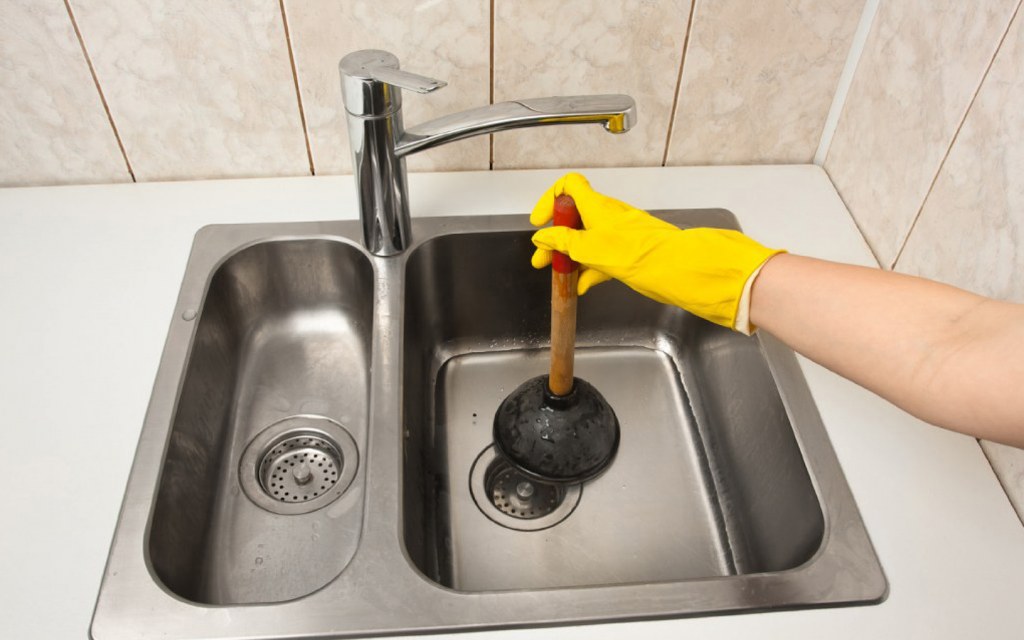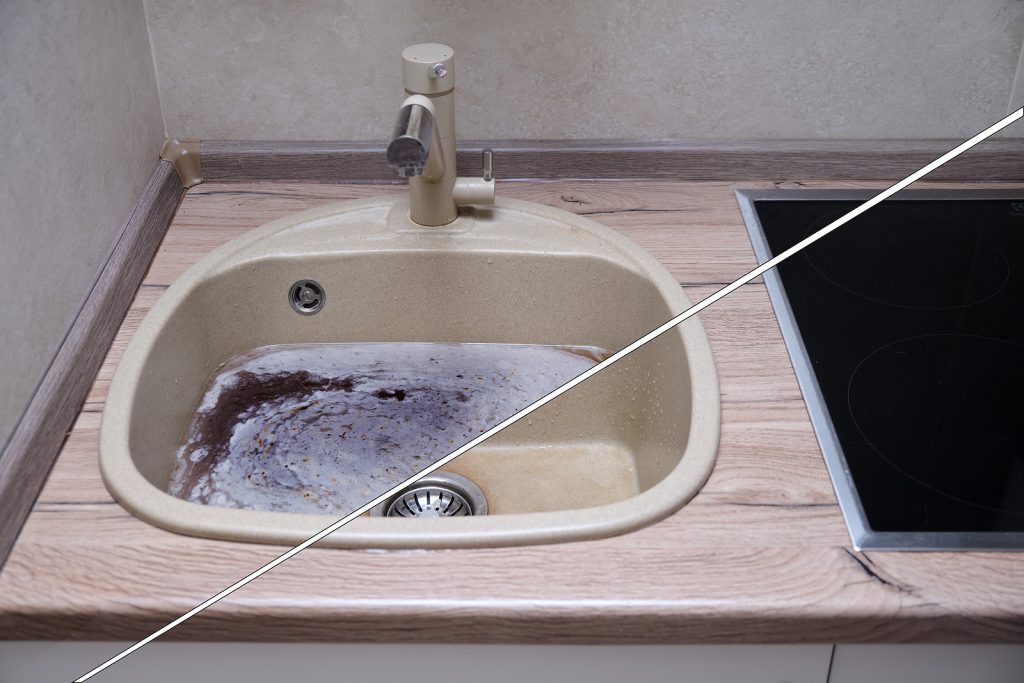Not Just Another Clog - 6 Reasons Your Kitchen Sink Drain Isn't Right
Not Just Another Clog - 6 Reasons Your Kitchen Sink Drain Isn't Right
Blog Article
Nearly everybody may have their unique conception with regards to What To Do When Your Kitchen Sink Won’t Drain.

It's not normal for your cooking area sink to congest multiple times in one month. If your sink blocks twice a week, there's some difficulty going on.
A blocked kitchen area drain doesn't simply reduce your jobs, it weakens your whole plumbing system, little by little. Here are some common habits that encourage sink clogs, and exactly how to avoid them.
You need appropriate garbage disposal
Recycling waste is fantastic, yet do you focus on your organic waste also? Your kitchen must have two separate waste boxes; one for recyclable plastics and an additional for natural waste, which can end up being compost.
Having actually a marked trash can will certainly aid you as well as your family avoid throwing pasta and various other food residues down the tubes. Generally, these residues absorb dampness and also come to be obstructions.
A person tried to clean their hair in the kitchen sink
There's a correct time and also location for whatever. The kitchen area sink is just not the ideal location to clean your hair. Washing your hair in the kitchen area sink will make it block eventually unless you utilize a drain catcher.
While a drain catcher might catch a lot of the results, some hairs might still survive. If you have thick hair, this might be enough to reduce your water drainage and also ultimately form an obstruction.
You're tossing coffee down the tubes
Used coffee grounds and also coffee beans still absorb a significant amount of moisture. They may seem tiny enough to throw down the drain, however as time goes on they start to swell as well as use up more area.
Your coffee grounds should enter into natural garbage disposal. Whatever portion gets away (maybe while you're depleting) will be cared for during your month-to-month clean-up.
You have actually been eating a great deal of oily foods
Your cooking area sink might still get blocked even with natural garbage disposal. This might be since you have a diet rich in oily foods like cheeseburgers.
This oil coats the insides of pipes, making them narrower and also even more clog-prone.
Your pipe wasn't fixed effectively to begin with
If you've been doing none of the above, but still obtain normal blockages in your kitchen sink, you ought to call a plumber. There could be an issue with how your pipelines were mounted.
While your plumber shows up, check for any kind of leaks or irregularities around your cooking area pipelines. Don't try to take care of the pipes on your own. This may cause a crash or a kitchen area flood.
There's even more dirt than your pipes can deal with
If you obtain fruits directly from a ranch, you may observe more kitchen area dirt than other people that go shopping from a mall. You can easily repair this by cleansing the fruits as well as veggies effectively before bringing them right into the house.
Melt the sludge
The fault isn't from your kitchen area sink in any way
Possibly the trouble isn't from your cooking area sink, yet the entire drainage system. In such a case, you may notice that other sinks and drains get clogged every other week. You need a professional plumbing service to fix this.
5 Things to Do if You Want to Unclog Your Kitchen Sink
Trick 1: Don’t Put Vegetable Peelings Down Disposal
Although the garbage disposal is a powerful and useful way to get rid of food waste, it is not meant for certain vegetables. Don’t put potato, carrot or celery peelings down the disposal. These veggies are fibrous or contain a lot of starch which can jam the disposal motor and clog your sink drain-piping every time. There are other food items that occasionally will clog your sink. If this happens, follow the next four tips.
Trick 2: Use Your Plunger
Plunger is a must-have tool for every household because it can be used to unclog any drain in any part of the house including the kitchen. Yes, the simple plunger can unclog your kitchen sink too. When you use the plunger, plug the other holes in you kitchen sink with a rag cloth. Also, ensure that the plunger cup completely covers the clogged kitchen sink hole. Now, keep the plunger in an upright position and plunge about ten times vigorously. This should remove any vegetable peels, food leftovers or any other solids in the kitchen sink.
Trick 3: Clear the P-trap
The P-trap is the pipe below your sink that’s shaped like the letter P (on its side). You should be able to spot it when you look in the cabinet below your sink. This pipe, shaped to provide a seal against sewer odors, gets clogged when receiving larger solid objects. To unclog the P-trap, you need a pair of gloves and a bucket. You should unscrew the large nut on both the sides of the trap with your bare hands and remove the pipe. Make sure you place a bucket right below the trap to collect all the unclogged water. You can also run your hands through the pipe to remove any solid objects.
Trick 4: Use a Metal Wire
Sometimes using a metal wire to push down or pull up debris from your drain can help unclog your kitchen sink. If you don’t have a metal wire, unbend a wire hanger and use it in the kitchen drain hole. Since this is time-consuming, you’d only use this trick as a last resort. It works well when you know what’s inside the drain.
Trick 5: Use a Drain Snake
Go to your local hardware store and buy a short manual-crank drain snake. This tool is fairly inexpensive and works well unless the clog is further down the drain, past the P-trap.
If none of the above tricks work, then you should call an expert right away, especially since clogged drains are the perfect breeding ground for all kinds of bacteria and viruses.
https://www.iveyengineering.com/things-to-do-unclog-kitchen-sink/

I was introduced to that write-up on Why Is My Sink Not Draining? through a friend on a different web property. Those who liked our article please do not forget to share it. Thanks so much for going through it.
Learn More
Report this page